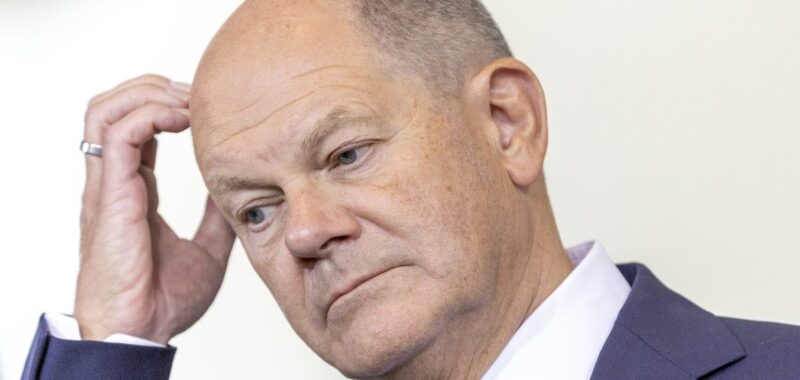
Intel has confirmed it will shelve plans to construct a mammoth €30 billion chip factory in Germany, sending its struggling government into a panic over the billions of euros it has committed to the project.
The struggling computing giant announced plans to postpone its plant in Magdeburg by up to two years as part of a rejigged AI chip plan in a bid to woo burned investors.
Intel’s shares have more than halved this year amid falling revenues and an investor swarm to AI chipmaking competitors, leaving it at risk of being ousted from the Dow Jones. However, following the announcement, shares jumped more than 6% in pre-market trading on Tuesday.
A significant part of Intel’s turnaround plan involves a huge cost-cutting drive that includes slashing headcount by 15%.
It is also holding off on unnecessary expenditure, with its German plant identified as one of those cases. Intel’s Irish operation, though, was spared the sword in Intel’s ruthless announcement.
Reports swirled earlier this month that Intel was considering shelving or even abandoning plans for its €30 billion German plant. The postponement will offer some relief to Chancellor Olaf Scholz as Germany’s manufacturing sector sits mired in a two-and-a-half-year-long recession. Intel said it could postpone production by up to two years, depending on demand.
The decision leaves the future of 3,000 potential jobs in limbo as they await Intel’s next move in Germany.
In addition to its German plant, Intel said it was postponing plans for its €4.6 billion Poland factory, which was expected to create 2,000 jobs.
At the same time as it cuts back on its European strategy, Intel has doubled down on its plans in the U.S., committing to expansion projects in Arizona, New Mexico, Oregon, and Ohio.
While Intel says the giant factory in Magdeburg will go ahead eventually, it has caused members of Germany’s coalition government to break rank as panic stews about the long-term prospects of its massive industrial sector.
Germany committed €9.9 billion in public funding to the Intel plant when it was announced in June last year.
In response to Intel’s announcement, Germany’s finance minister, Christian Lindner, who is aligned with a different party from Chancellor Scholz, has called for the funds to be redistributed to plug an urgent gap in Germany’s finances.
In a post on X, formerly Twitter, said. “All funds not required for Intel must be reserved to reduce open financial issues in the federal budget. Anything else would not be responsible policy.”
The German government faces a €12 billion hole in its finances for 2025, and there is little indication yet of how it will be closed.
The government has already softened strict fiscal targets, reducing that hole from €19 billion in August, allowing it to run a bigger deficit next year.
The immediate response of Germany’s finance minister speaks to unrest within the ruling coalition government, which is facing pressure from a right-wing surge.
Lindner hails from Germany’s Free Democratic Party, while Chancellor Scholz is the leader of the Social Democratic Party.
Pressure from Lindner could leave Scholz in a bind, fearing reprisals from Intel if the allocated €10 billion for the plant are removed while facing the ire of voters if he lets the sum sit unused for up to two years.
For his part, Scholz doubled down on his government’s partnership with Intel, suggesting Lindner won’t get his wish.
“The decision to postpone the project in Germany for two years is a decision that also includes the intention to stick with it,” Scholz said on Tuesday.
“It is important for us that we take this opportunity in this very volatile business of the semiconductor industry to help ensure that there is nevertheless a further expansion of the already profound capacities in Germany,” he said.
Lindner’s compatriot in government, Scholz, is facing the worst approval ratings for a chancellor since Germany reunified in 1990.
As he deals with the potential of thousands of job cuts at Germany’s largest employer, Volkswagen, Intel’s cooling interest in the country could scarcely have come at a worse time for Scholz.
Data Sheet: Stay on top of the business of tech with thoughtful analysis on the industry’s biggest names.
Sign up here.

